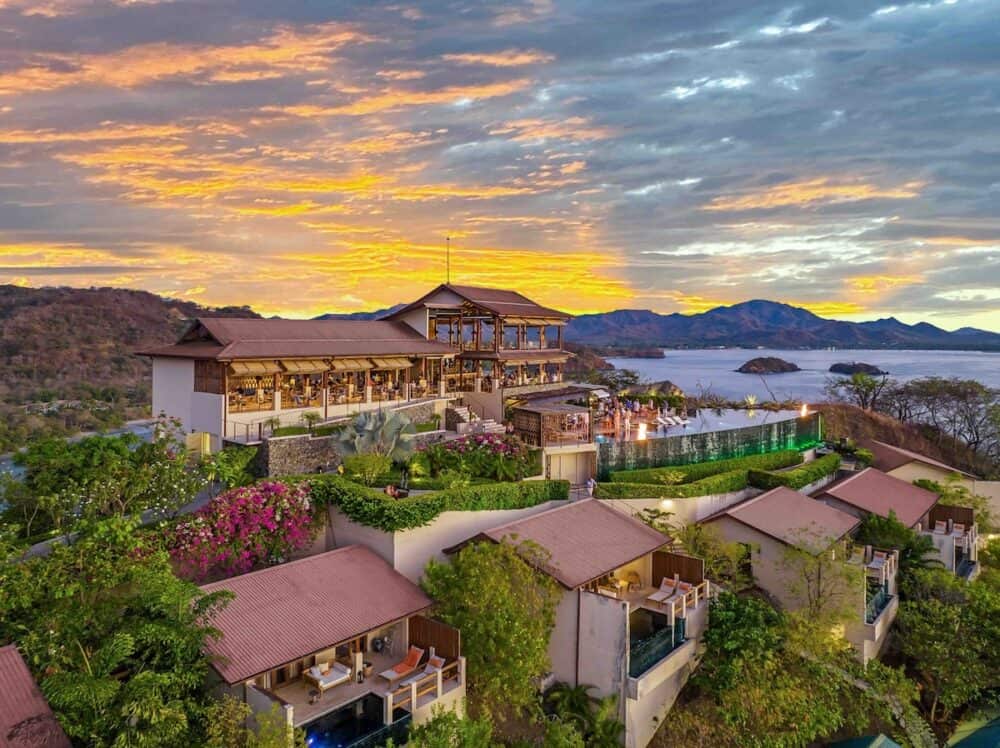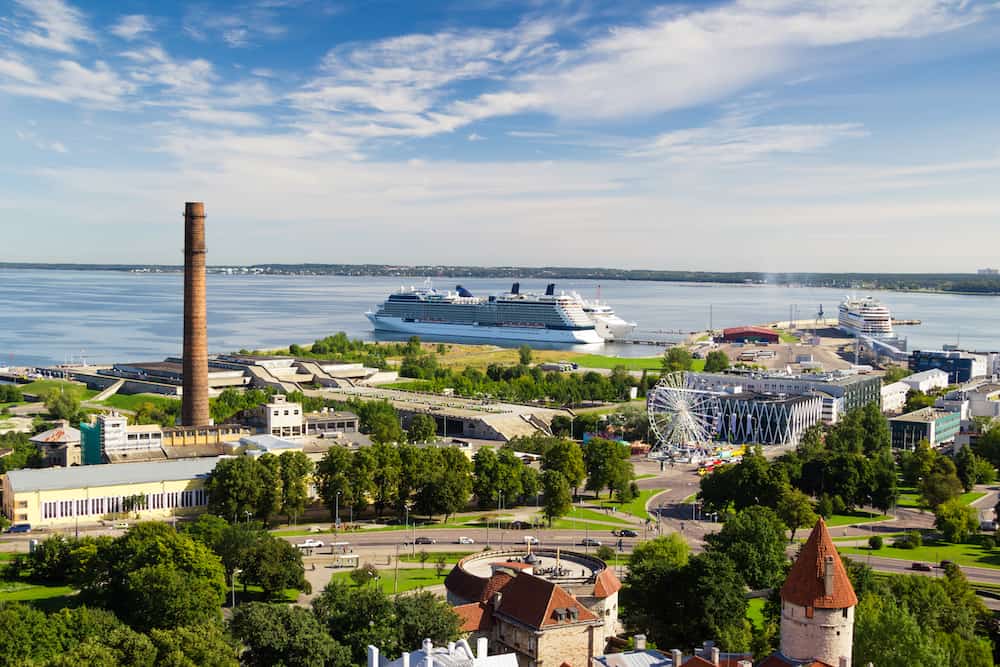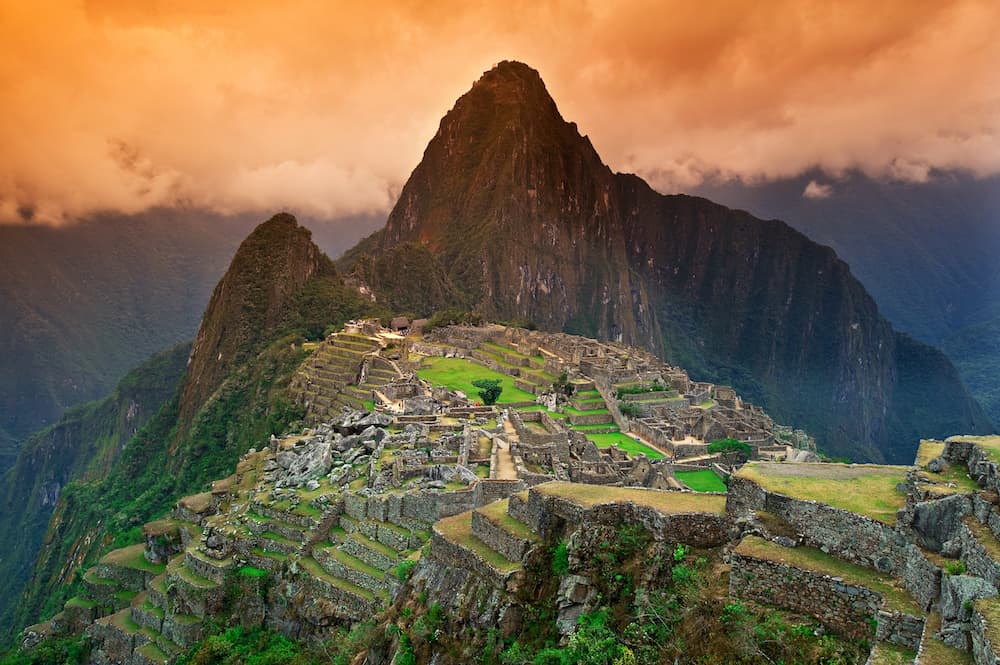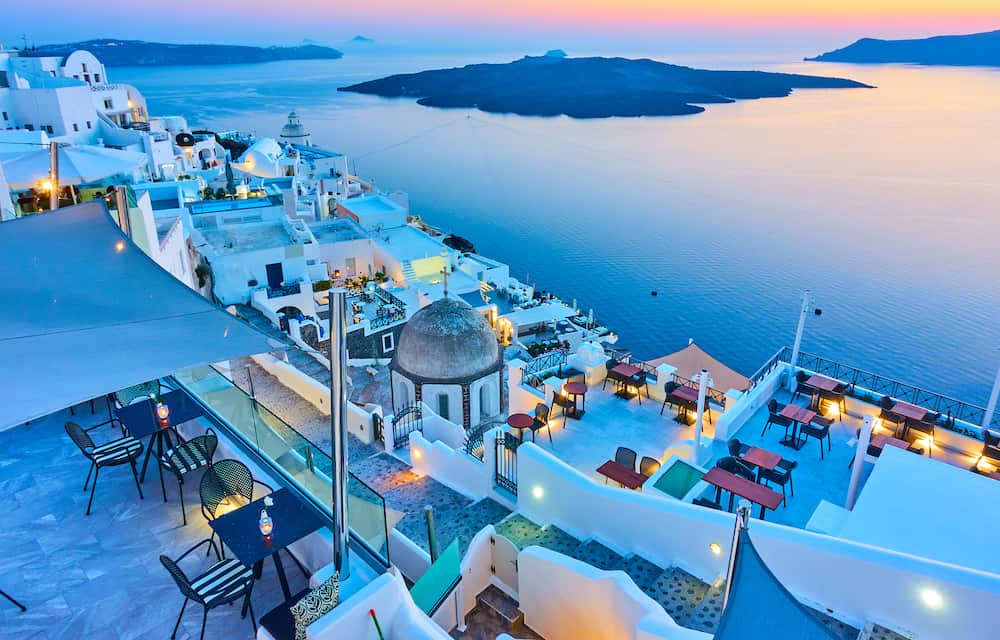Sustainable Travel: Eco-Friendly Destinations and Brands Making a Difference
In today’s world, luxury and sustainability can go hand in hand. Many destinations are embracing innovative ways to combine high-end experiences with eco-friendly practices, offering travellers unforgettable adventures that make a positive impact.
From solar-powered lodges to conservation-driven programs, these destinations are not just offering a place to visit—they’re leading the way in protecting our planet for future generations.
Plan your trip
Save on fees abroad with the Wise Card—use it at ATMs, restaurants, and for flights or hotels in over 150 countries. Manage 40+ currencies in real-time with the Wise app.
Need Help Planning?
- Cheap Flights: Find the best deals.
- Accommodation: From hostels to luxury stays.
- Car Rental: Affordable options worldwide.
- Sightseeing Tours: Explore without breaking the bank.
- Travel Adapter: One adapter for all your needs.
- Travel Insurance: Don’t risk it—stay covered.
This post includes affiliate links. Read my full disclosure and content policy.
1. Lovango Resort and Beach Club, U.S. Virgin Islands
Lovango Resort and Beach Club exemplifies eco-luxury, nestled in the stunning natural surroundings of the U.S. Virgin Islands. This resort operates entirely on wind and solar power, with water conservation and waste reduction systems in place to minimize environmental impact. The accommodations are built with sustainable materials, ensuring that guests can enjoy modern luxury while reducing their ecological footprint.
What sets Lovango apart is its dedication to marine conservation. The resort offers guests the chance to snorkel and witness live coral research and regeneration projects. Since 2020, Lovango has reattached over 1,000 coral pieces across 10 species, helping to restore vibrant coral reefs that are vital to the local marine ecosystem. Guests can dive into conservation zones, each equipped with underwater signage to educate and engage visitors on the importance of coral health.
Lovango Resort truly blends luxury with purpose, giving guests a chance to unwind while actively contributing to the preservation of the Earth’s natural beauty.

2. Zannier Hotels
With properties spanning the globe, Zannier Hotels has a steadfast commitment to sustainability that is woven into every aspect of its operations. From eco-construction to renewable energy, the group is continuously innovating to reduce its environmental impact. At Zannier Omaanda in Namibia, for instance, the sandbag structures blend seamlessly into the landscape, while Zannier Sonop operates entirely on solar power, surrounded by the vast Namib Desert.
Zannier Hotels also focuses on giving back to local communities and environments. In Cambodia and Vietnam, guests can participate in traditional rice harvesting or fishing, deepening their connection with the local culture. The group’s dedication to responsible travel extends to large-scale environmental projects, including coral reef restoration in Vietnam and the creation of a 7,500-hectare reserve in Namibia.
Zannier Hotels proves that eco-friendly tourism can be both luxurious and deeply impactful, offering guests life-changing encounters and memories that last a lifetime.

3. Chocolate Gannets, Apollo Bay, Great Ocean Road, Australia
Located in the heart of the Great Ocean Road, Chocolate Gannets Beachfront Luxury Villas takes eco-consciousness seriously. The resort is a proud member of 1% for the Planet, donating 1% of its revenue to local environmental organizations. Additionally, the property is engaged in habitat rehabilitation around the villas, having planted more than 3,000 native Australian plants, creating a haven for local wildlife.
One of the most popular features of Chocolate Gannets is the Koala Track, where guests can spot wild koalas in their natural habitat among eucalyptus trees. The track is part of the broader effort to rehabilitate the land and promote biodiversity, giving guests a unique opportunity to witness Australian wildlife up close.
Guests at Chocolate Gannets can also enjoy the resort’s eco-friendly amenities, including a free electric vehicle (EV) charger, which encourages sustainable travel along the Great Ocean Road. Combining luxury with a strong commitment to environmental stewardship, Chocolate Gannets offers an unforgettable stay for eco-conscious travellers.

4. The Asa Maia, Uluwatu, Bali
For those seeking barefoot luxury with an eco-conscious twist, The Asa Maia, Uluwatu, offers a truly unique experience. Built with 95% reclaimed wood, including century-old traditional Javanese gladaks and Belgian blue stone salvaged from an old railway station, the resort exudes a rustic charm while minimizing its environmental impact.
One fascinating aspect of sustainable travel is discovering how historical materials are repurposed in eco-friendly ways. For example, the blue stone you’ll find in some regions has a unique story. Originally known as Belgian Blue Stone, it was brought over by Dutch colonists more than 300 years ago. These stones were used as ballast in the ships’ hulls during their long voyages.
Once they reached their destinations, the stones were discarded to make room for valuable trading goods, such as spices. Today, these stones are still found in some areas, offering a glimpse into history while supporting sustainable practices by reusing these historic materials in modern architecture and construction.
In addition to its eco-friendly design, The Asa Maia, Uluwatu offers an array of wellness treatments, including contrast therapy in subterranean hot and cold pools, hypnosis, and Pilates sessions with state-of-the-art equipment. The resort’s focus on holistic well-being is evident in its offering of organic, meat-free cuisine sourced from local farmers in northern Bali.
What truly sets The Asa Maia, Uluwatu apart is its social responsibility. The resort provides massage services by the blind, offering guests a unique experience while supporting a vulnerable community. This adults-only resort is an intimate escape where guests can relax, recharge, and feel good about their impact on the environment.

5. Nelson Tasman, New Zealand’s ‘Light-Footprint Itinerary’
Nelson Tasman is a region renowned for its stunning natural landscapes, and preserving its beauty is paramount. The area offers travellers a unique eco-friendly experience with its first-of-its-kind low carbon footprint holiday itinerary. While it’s not perfect yet, it’s a great first step towards green travel, allowing visitors to enjoy this picturesque region while making minimal environmental impact.
Start your adventure at Nelson Airport, which was built with passive design principles and locally sourced timbers, setting the tone for your eco-conscious holiday. For those looking for a cycling adventure, The Gentle Cycling Company offers e-bikes to explore Tasman’s Great Taste Trail, while Wine Art and Wilderness provides guided tours of local wineries, art galleries, and nature spots. Choose a hybrid or electric vehicle from Go Rentals to further reduce your carbon footprint as you explore.
Stay at Pihopa Retreat, a luxury accommodation focused on being Carbon Positive and giving back to the community. Enjoy kayaking and boating trips with Abel Tasman Aqua Taxi and Mārahau Sea Kayaks, both of which are certified carbon-zero, offering unique experiences that showcase the area’s rich birdlife and scenic landscapes. End the day with a meal at Hooked, a local favorite for waterfront dining.
With eco-conscious accommodations like Abel Tasman Ocean View Chalets and exciting adventure options such as Abel Tasman Canyoning, Nelson Tasman proves that going green doesn’t mean sacrificing luxury or adventure.

6. The Mārahau Pledge
A collaboration between Mārahau-based tourism operators, the Mārahau Pledge is dedicated to improving the local environment and community. Every operator involved offers zero-carbon experiences, having reduced and offset their greenhouse gas emissions. Together, they’ve raised over NZ$258,000 through a small contribution added to every ticket purchased by visitors. This funding supports projects like predator trapping, wetland restoration, and enhancing local landmarks.
The Pledge’s efforts ensure that every visitor experience is a step toward preserving the stunning Abel Tasman National Park. From kayaking to canyoning, guests can enjoy the beauty of the region while knowing they’re supporting sustainable tourism.
7. Totem Eco, Natural Deodorant Collection
Totem Eco takes a holistic approach to sustainability, from its eco-friendly ingredient sourcing to its responsible packaging practices. Their natural deodorant range is powered by magnesium and offers long-lasting protection without harmful additives. Founded by a husband-and-wife duo after personal health scares, Totem Eco is more than just a brand—it’s a lifestyle choice that supports health, family, and the planet.
Available in various scents and formulations, Totem Eco provides a healthier, eco-conscious alternative to mainstream deodorants. Their commitment to sustainability extends beyond their products, offering a mindful approach to personal care that benefits both individuals and the environment.

8. The Islands of Tahiti
In The Islands of Tahiti, sustainability isn’t just a trend—it’s a way of life that has been practiced for thousands of years. While environmental conservation has only recently become a global focus, the people of Tahiti have always lived in harmony with nature. In 2022, Tahiti Tourisme introduced a comprehensive sustainability roadmap aimed at positioning Tahiti as a leader in inclusive and sustainable tourism in the Pacific. This strategy, developed in partnership with the local population, government, and tourism stakeholders, outlines bold steps to protect the islands’ natural resources, uplift local communities, and ensure a high-quality visitor experience.
Whether you’re drawn to the famous Bora Bora, the lesser-known islands of Raiatea and Taha’a, or an intimate escape on a private motu, Tahiti offers an array of eco-friendly accommodations that are committed to environmental stewardship. For example, The Brando, a luxury resort on Tetiaroa, is at the forefront of sustainability. Discovered by the late Marlon Brando, this private island resort is not only dedicated to preserving the land but also serves as a research hub for ecology and marine biology. The resort is powered by solar energy and utilizes a pioneering seawater air-conditioning system (SWAC) as part of its goal to become fully carbon-neutral and self-sustainable.
For a more remote experience, Motu Nao Nao near Raiatea offers a Robinson Crusoe-style escape with handcrafted bungalows, a farm-to-table menu sourced ethically, and solar-powered energy that supplies 83-100% of the resort’s needs. This pristine Pacific retreat combines luxury with a minimal environmental footprint, giving guests an authentic island experience while protecting the surrounding ecosystem.
Meanwhile, The Intercontinental Tahiti Resort & Spa places sustainability at the heart of its operations with an onsite Lagoonarium, home to over 200 marine species. Supported by the CRIOBE marine research lab, the resort focuses on protecting the fragile coral reefs. Their recycling initiatives have eliminated the use of 350,000 plastic straws and reduced plastic waste by three tons each year.
These eco-conscious accommodations in The Islands of Tahiti offer more than just a stay in paradise—they allow travellers to engage with the natural environment in a way that supports its preservation for generations to come.

9. Media One Hotel, Dubai
Media One Hotel Dubai is a shining example of sustainable hospitality in the heart of the UAE. As one of the top 3% of hotels in Dubai committed to sustainability, it has achieved Green Key Certification. The hotel runs on 100% renewable energy, has eliminated over 50,000 plastic bottles annually, and champions eco-conscious initiatives like paperless check-ins and energy-efficient lighting.
As the official COP28 Hotel, Media One is more than just a place to stay—it’s a destination dedicated to reducing its carbon footprint and supporting the well-being of its community. Partnerships with key environmental organizations further reinforce the hotel’s commitment to sustainability and responsible tourism.

10. Hyatt Centric Key West Resort and Spa, Florida
Nestled off Duval Street, Hyatt Centric Key West Resort & Spa is a serene waterfront retreat with a strong commitment to sustainability. As part of its mission to eliminate single-use plastics, the resort has reclaimed and recycled over a ton of aluminum across the property and surrounding Key West community. This initiative supports the protection of the Florida Reef, North America’s only living coral barrier reef. Other eco-friendly efforts include electric charging stations, bulk amenities, bicycle rentals, and mobile entry.
The resort’s dedication to sustainability has earned it a Green Key Global 3 Key Designation, a testament to its strong environmental programs and corporate social responsibility. Through The Infinite Bottle Project, Hyatt Centric Key West donates 100% of its aluminum recycling proceeds to Reef Relief, furthering its mission to preserve the reef.

11. Casa Chameleon at Las Catalinas, Costa Rica
Casa Chameleon at Las Catalinas is an eco-conscious boutique hotel perched on a hill overlooking the Pacific Ocean. Committed to preserving the surrounding natural beauty, the resort has implemented a variety of sustainable initiatives. The “Every Stay Gives Back” program supports community development in rural Guanacaste, with donations made through guest contributions to local organization Abriendo Mentes.
Casa Chameleon also champions plastic reduction, using bamboo straws, glass bottles, and handmade clay soap dispensers. Their Plant-a-Tree program allows guests to contribute to local schools and the environment, while energy-efficient lighting, water-saving fixtures, and a sustainable food supply chain ensure the resort minimizes its environmental footprint.

12. Lemala Camps & Lodges, Africa
Lemala Camps & Lodges offers an immersive safari experience in Tanzania and Uganda while prioritizing sustainability and community empowerment. All their properties operate 100% off-grid using renewable solar energy, and single-use plastics are eliminated. The resort even upcycles plastic waste into school furniture, with profits going toward building a new primary school at Eluway.
Lemala sources nearly all food and supplies locally, ensuring the surrounding communities benefit from tourism. Guests can also enjoy biodegradable lunch boxes and participate in eco-conscious initiatives, such as supporting a women’s empowerment group that makes the resort’s lunch boxes.

13. ChoZen Eco-Retreat and Sanctuary, Florida
ChoZen Eco-Retreat and Sanctuary, located in the heart of Florida’s biodiverse lagoon system, is dedicated to protecting the environment through immersive, educational experiences. Partnerships with organizations like Wild Path and Carlton Ward Jr. help preserve the Florida Wildlife Corridor, and guests can participate in seaplane expeditions that highlight conservation efforts.
The retreat also offers permaculture tours and experiences on ChoZen Farm, where the property focuses on regenerating soil and ecosystems. ChoZen is committed to being a responsible steward of the land, promoting a balanced relationship with nature while giving back to local communities.

14. Rome Cavalieri, A Waldorf Astoria Hotel, Italy
Rome Cavalieri, A Waldorf Astoria Hotel, is a luxury city hotel with a deep commitment to sustainability. As the first hotel in Rome to receive Green Key certification, the property has implemented practices to reduce its carbon footprint, eliminate single-use plastics, and restore local parks. Initiatives like RecuperAle, which repurposes surplus bread into beer brewed by a local brewery employing prisoners, highlight the hotel’s creative approach to sustainability.
The hotel’s farm-to-table philosophy is embodied in its Uliveto Restaurant & Terrace, where dishes are made using fresh, locally sourced ingredients. Guests can also engage in eco-conscious experiences like visiting Carmina Campus for sustainable creativity workshops or exploring Rome aboard an electric Vespa.

Final Thoughts
As the world becomes more conscious of the environmental impact of travel, it’s inspiring to see destinations stepping up to prioritize sustainability. From preserving marine ecosystems and protecting wildlife corridors to reducing plastic waste and supporting local communities, these eco-friendly locations are proving that you don’t have to sacrifice luxury to be environmentally responsible.
By choosing to support these initiatives, travellers can not only enjoy remarkable experiences but also play a part in safeguarding the planet for future generations. Sustainable travel is no longer just an option—it’s the future of tourism.










